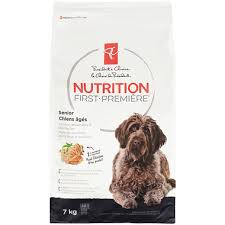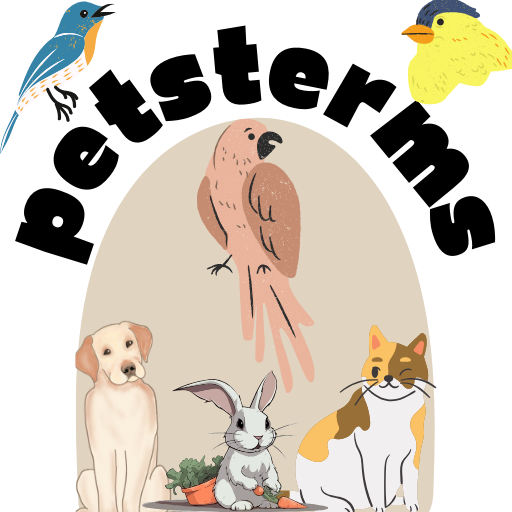Introduction to Senior Dog Food
As dogs grow, their nutritional needs change and a diet that is suitable for a young dog may not be suitable for an older dog. Senior dog food is designed to address the various health issues faced by senior dogs, ensuring they have a healthy weight, strong joints and good digestion. But what exactly makes different dog foods different and how can it benefit your elderly friend?

Why do older dogs need a different diet?
Understanding Aging in Dogs
Like humans, dogs go through various stages of life, but as they age, their metabolism slows down, their energy levels decrease, and their joints and organs wear out. These changes mean that they need a diet that is tailored to their health status.
Common health problems in senior dogs
Older dogs are more prone to arthritis, obesity, dental problems and digestive problems. As their bodies become more able to process food, choosing foods with the right balance of nutrients becomes important for their long-term health.
Nutritional needs of senior dogs

Protein levels
While puppies and older dogs need high protein for growth and energy, older dogs benefit from a moderate protein intake. Protein helps maintain a healthy weight, which is important for movement and overall health in older dogs.
Fat content
Low fat content is best for older dogs because they are less active and can gain weight quickly. However, fat should still be present in their diet to provide energy and promote healthy skin and clothing.
Carbohydrates and fibre
Older dogs tend to have indigestion. Therefore, foods rich in fibre can help continue their regular diet. Carbohydrates provide energy, but must be moderated to avoid obesity.
Vitamins and minerals
Essential nutrients such as antioxidants, vitamins C and E, and minerals such as calcium promote joint health, strengthen the immune system, and strengthen bones.
Types of food for adult dogs
Dry food for older dogs
Kibble remains one of the most popular types of dog food. It’s healthy, cheap and good for dental health since the crunch helps reduce tartar build-up. However, make sure the kibble is soft for older dogs with dental problems.
Liquid food for older dogs
Liquid food is a great option for older dogs with dental problems or a decreased appetite. Its high water content is also useful for hydration, especially in dogs with frequent urinary or kidney problems.
A grain-free option
Some older dogs can develop food sensitivities, and grain-free options can help manage allergies. However, consult your veterinarian before switching to a grain-free diet, as not all dogs need it.
Homemade Senior Dog Food
Homemade food allows for the full use of ingredients, but it can be time-consuming. It is important to ensure proper nutrition. Therefore, seek help from a veterinarian or pet nutritionist when preparing food at home.
The best thing you could want in a Senior dog food
Joint health support (glucosamine and chondroitin)
Joint health is a big concern in older dogs, especially large breeds. Glucosamine and chondroitin help support joint function and reduce arthritis symptoms, which can improve mobility and comfort.
Digestive support (probiotics and fibre)
Probiotics and fibre aid digestion and help prevent constipation, a common problem in older dogs. Things like pumpkin and sweet potatoes can support gut health.
Load management
Older dogs tend to be overweight, which can make joint problems worse. Look for foods that are low in calories but still provide all the essential nutrients. How to choose the best food for senior dogs
Vet Advice
Before changing your dog’s diet, always consult your veterinarian. He will be able to give you personalised advice based on your dog’s health condition, breed and size.
Shape and size specific method
Some brands offer specific shapes or sizes that meet the unique needs of small, medium or large dogs. These foods take into account factors such as joint health, calorie needs and metabolic rate.
Tips for feeding older dogs
Food frequency
Older dogs need frequent and small meals. This can help digestion and prevent overeating.
Portion control
It is important to maintain health in older dogs. So you have to pay attention to the portion size. Overeating can lead to obesity, which worsens joint pain and increases the risk of other health problems.
Change the diet according to the health condition
If your senior dog has specific health problems, such as kidney disease or arthritis, his diet may need to be adjusted. For example, dogs with kidney disease often need a diet low in protein, while people with arthritis need a diet high in omega-3 fatty acids.
Common mistakes to avoid
Don’t ask a vet: Consult a vet before making any major changes in diet.
Feed young dogs the same food: Older dogs have different nutritional needs, so avoid continuing to feed them the same food as when they were younger. Ignore obesity: obesity is a common problem in older dogs and can lead to many health problems.
Switching to Senior Dog Food
Gradual changes in diet
When switching to senior dog food, do this gradually over 7 to 10 days to avoid irritation. Start by mixing a small amount of the new food into their current diet and increase the amount over time.
Monitor your dog’s reaction
Pay attention to your dog’s energy, weight and stool quality when they change their diet. If he shows signs of discomfort, contact your veterinarian for advice.
Signs that your dog needs a new diet
If your senior dog is showing signs of weight gain, loss of energy, digestive problems, or joint pain, it may be time to consider a new diet. Regular veterinary check-ups will help you continue to meet their health needs.
Conscious
Providing the right food for your senior dog can improve its quality of life. As dogs age, their bodies change and their nutritional needs change. By choosing the right food for their age, you can help them stay active, manage their weight and stay as healthy as possible.
FAQs
When should I transition my dog to old dog food?
Most dogs should transition to senior dog food at around age 7, but this varies depending on breed and size.
Can I feed my senior dog homemade food?
Yes, but make sure they are properly nourished. Contact your veterinarian or pet nutritionist to make sure your dog is getting all the nutrients it needs.
How often should I feed my senior dog?
Older dogs usually need small, frequent meals, such as two to three times a day.
What should I avoid in senior dog food?
Avoid artificial preservatives, fillers, and unhealthy grains like corn and wheat. Opt for everything, naturally.
Can senior dogs eat the same food as older dogs?
It is possible, it is not recommended. Older dogs have different needs, such as fewer calories and joint support.

